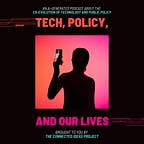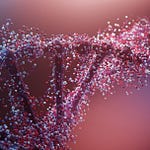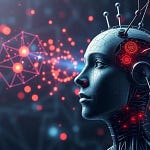Key Takeaways:
The 2024 Nobel Prize in Physics was awarded to Geoffrey Hinton and John Hopfield for their pioneering work on artificial neural networks, which laid the foundation for modern deep learning.
The 2024 Nobel Prize in Chemistry went to David Baker, Demis Hassabis, and John Jumper for using AI to predict and design protein structures, revolutionizing our understanding of these crucial biological molecules.
The convergence of AI and life sciences is opening up unprecedented possibilities for drug discovery, protein engineering, and understanding biological systems.
This rapid progress also raises important ethical and security considerations, particularly in the areas of AI safety and biosecurity.
Interdisciplinary collaboration, robust biosecurity measures, ethical AI development, public engagement, and international cooperation are crucial for responsibly navigating this new frontier.
The NASEM consensus study on AI in the life sciences is working to address key questions about the potential risks and benefits of these technologies.
Everyone has a role to play in shaping the future of AI and life sciences, from staying informed to participating in public discussions on these important issues.
Hey there, science enthusiasts and policy wonks!
Titus here, and I've got some mind-blowing developments to share about the recent Nobel Prizes in physics and chemistry. It's a topic that's had me buzzing with excitement (and losing some sleep), as the breakthroughs honored this year are accelerating the already breakneck pace of innovation at the intersection of artificial intelligence and the life sciences. Buckle up, because we're about to dive into how these awards are reshaping our understanding of intelligence - both artificial and biological.
First, let's talk physics. The 2024 Nobel Prize in Physics was awarded to two pioneers in the field of artificial intelligence: Geoffrey Hinton and John Hopfield. Their work on artificial neural networks laid the groundwork for the deep learning revolution we're experiencing today. But here's the kicker: this isn't just about better image recognition or language models. The Nobel Committee emphasized how their discoveries have "showed a completely new way for us to use computers to aid and to guide us to tackle many of the challenges our society faces."
Hinton’s 2012 paper, ImageNet Classification with Deep Convolutional Neural Networks, was the seminal paper that put AI back on the mainstream map.
Let's connect some dots here. Hinton and Hopfield's work on neural networks in the late 1970s and early 1980s was inspired by the architecture of the human brain. They were trying to create computational systems that could learn and adapt like biological neurons. Fast forward to today, and we're using these artificial neural networks to solve complex problems in biology itself. It's a beautiful example of how insights from one field can revolutionize another in unexpected ways.
Now, you might be thinking, "That's cool and all, but what does this have to do with life sciences?" Well, hold onto your lab coats, because that's where the chemistry Nobel comes in.
The 2024 Nobel Prize in Chemistry was awarded to a trio of scientists who used artificial intelligence to "crack the code" of almost all known proteins. David Baker completed "the almost impossible feat of building entirely new kinds of proteins," while Demis Hassabis and John Jumper developed an AI model to predict proteins' complex structures – a problem that had stumped scientists for 50 years.
This is groundbreaking stuff, folks. Proteins are the workhorses of biology, involved in virtually every process in our bodies. They help form our cells, read and repair our DNA, and carry oxygen in our blood. Understanding their structure is crucial for developing new drugs, designing enzymes for industrial processes, and even creating new materials inspired by nature.
The AI system developed by Hassabis and Jumper, called AlphaFold, can predict the 3D structure of a protein from its amino acid sequence with unprecedented accuracy. This is a game-changer for drug discovery, as it allows researchers to rapidly screen potential drug candidates and understand how they might interact with target proteins in the body.
Jumper and Hassabis’ 2021 paper, Highly accurate protein structure prediction with AlphaFold, was the seminal paper that put AI and biology in lock step.
But here's where things get really exciting (and a bit mind-bending): Baker's work takes this a step further by using AI to design entirely new proteins that don't exist in nature. We're talking about custom-built molecular machines that could catalyze new chemical reactions, neutralize toxins, or deliver drugs with pinpoint precision.
The implications of these advances are staggering. We're entering an era where we can not only read the "book of life" written in our DNA and proteins but also write new chapters with artificial intelligence as our co-author. This convergence of AI and biology is opening up possibilities that were once the realm of science fiction.
Now, I know what some of you are thinking: "This all sounds great, but what about the risks?" And you're absolutely right to ask that question. As with any powerful technology, we need to consider the potential downsides and ethical implications.
On the AI front, Hinton himself has expressed concerns about the rapid advancement of artificial intelligence. He left his job at Google last year to speak more freely about the potential dangers of AI systems becoming smarter than humans. During the Nobel announcement, he said, "It will be comparable with the Industrial Revolution. Instead of exceeding people in physical strength, it's going to exceed people in intellectual ability. We have no experience of what it's like to have things smarter than us."
This is a crucial point. As we develop AI systems that can outperform humans in more and more domains, including scientific research, we need to think carefully about how to ensure these systems remain aligned with human values and interests.
On the biology side, the ability to design custom proteins raises important biosecurity considerations. While this technology has immense potential for good – like creating new enzymes to break down pollutants or designing proteins to neutralize viruses – it could potentially be misused to create novel biological threats.
This is where policy comes into play, and it's an area I've been deeply involved with. This year, I am part of a National Academies of Sciences, Engineering, and Medicine (NASEM) consensus study examining the potential risks and benefits of AI in the life sciences. This study, mandated by President Biden's Executive Order on the "Safe, Secure, and Trustworthy Development and Use of Artificial Intelligence," is tackling some heavy questions:
1. How can AI increase biosecurity risks, especially when it comes to generative AI trained on biological data?
2. What are the national security implications of using government-owned or funded datasets for training AI models?
3. How can AI be used to actually reduce biosecurity risks?
Being part of this study group is both exhilarating and sobering. We're at the forefront of shaping how our society will approach the powerful convergence of AI and biology. The potential benefits are enormous – imagine AI systems that can rapidly develop vaccines for emerging pathogens or predict and prevent pandemics before they start. But the flip side is equally impactful – the same technologies could potentially be misused to design biological threats or compromise sensitive genetic information.
So, what can we do to navigate this new frontier responsibly? Here are a few key areas we need to focus on:
1. Interdisciplinary collaboration: We need biologists, computer scientists, ethicists, policymakers, and security experts working together to understand the full implications of these technologies and develop appropriate governance frameworks.
2. Robust biosecurity measures: As we develop more powerful tools for protein design and synthetic biology, we need to ensure that appropriate safeguards are in place to prevent misuse.
3. Ethical AI development: We need to prioritize the development of AI systems that are transparent, explainable, and aligned with human values.
4. Public engagement: These technologies will impact everyone, not just scientists and policymakers. We need to foster public understanding and dialogue about the potential benefits and risks.
5. International cooperation: The challenges and opportunities presented by AI in the life sciences are global in nature. We need international frameworks for responsible research and development.
The convergence of AI and life sciences is one of the most exciting and consequential developments of our time. It's a field ripe with potential for groundbreaking discoveries and innovations that could dramatically improve human health and our understanding of biology. But it's also a field that requires careful consideration and responsible stewardship.
As we continue this journey, I'll be sharing updates on the NASEM study and insights from our ongoing work. The Nobel Prizes awarded this year are just the beginning of a much larger conversation – one that I'm thrilled to be part of, and one that I hope you'll join in too.
So, what can you do? Stay informed, for starters. The issues we're grappling with in the NASEM study and that are addressed in the recent Nobel-winning work will impact everyone, not just scientists and policymakers. Engage in discussions about AI ethics and biosecurity. Support research that aims to harness AI for positive biological applications. And most importantly, keep asking questions.
Remember, we're not just passive observers in this revolution – we're all participants in shaping the future of science and technology. Whether you're a researcher, a policymaker, or simply a curious citizen, your voice matters in this ongoing dialogue.
As we navigate this frontier of innovation and security, let's harness our collective intelligence – both natural and artificial – to create a future that's not only technologically advanced but also ethically sound and beneficial for all of humanity.
Stay curious, stay engaged, and let's shape the future of AI and life sciences together!
Cheers,
-Titus
The podcast audio was AI-generated using Google’s NotebookLM











